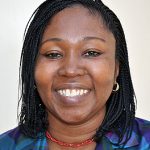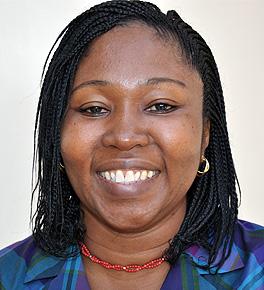OUR FELLOWS

OUR FELLOWS
Born in Port Harcourt a month after Nigeria’s civil war ended in 1970, Ebinimi Joseph Ansa was named “all is well” (after the war) or “even a female child is okay” by her well-known father—a paramount chief and hobby poet—who hoped for a boy after having eight daughters.
Every two years, the whole community would gather to harvest the fish from the big ponds,” she recalls, which awakened her interest in pursuing a career in aquaculture.
Field of Research
Integrated fish-farming methods for rural African women and marginalized fish farmers to produce prawns, oysters, and tilapia, as a response to climate change.
Fellows Stories
Free Insects Reduce Feeding Cost for Fish Farmers
Date: May 24, 2021
Fellows Stories
Free Insects Reduce Feeding Cost for Fish Farmers
Date: September 17, 2017

Some smallholder commercial fish farmers in the South-South region of Nigeria are reducing feeding costs by about 15 percent through provision of free insects for fish to consume all night long.
Ebinimi Ansa, an aquaculture researcher and African Women in Agricultural Research and Development (AWARD) Fellow, who has been at the forefront of innovative aquaculture researches, says “Even when there is no electricity supply, hanging a lantern on poles near the fish pond can produce the same result.” She says this is more easily achieved in places where there is vegetation, especially in rural areas that are surrounded by thick vegetation.
